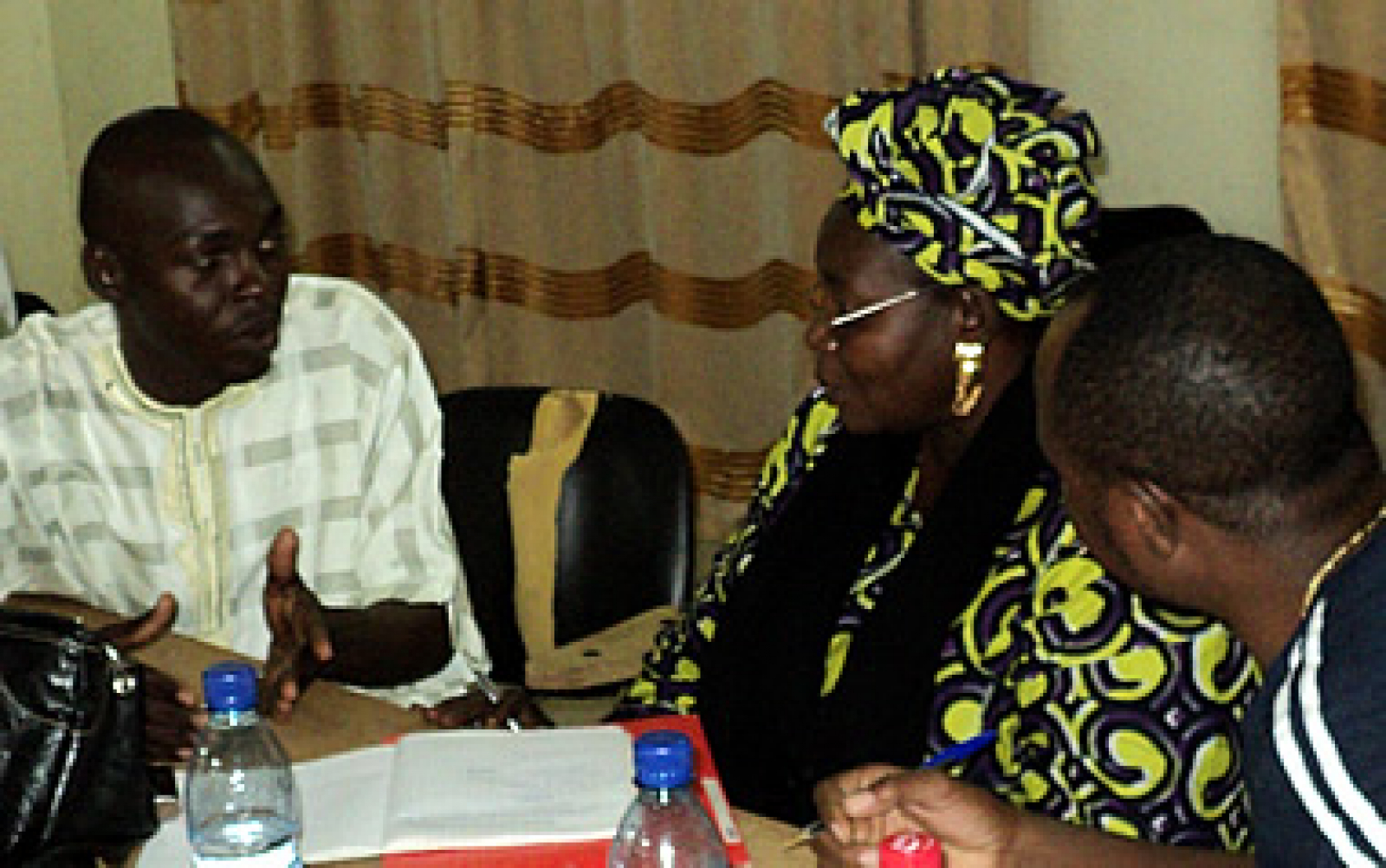
SHARE
In Mali, a new series of citizen forums aims to solve community problems and incorporate women as full partners in the process.
Mali transitioned to democracy 20 years ago, but citizens are becoming increasingly disenchanted with their government. Voter turnout was about 30 percent when local elections were last held in 2009, and many people feel that elected officials don’t represent them. Some 45 percent of Malians say they are dissatisfied with the way democracy works in their country, in part because the nation remains very poor and they don’t believe their elected representatives are working to create jobs or spur development.
Because members of parliament live in the capital, they can be disconnected from constituents in the rest of this large, predominantly Muslim, West African country. Citizens rarely interact with their elected leaders and don’t think they are helpful with issues that matter to them.
Women leaders face an additional set of challenges. They currently make up only 10 percent of Mali’s National Assembly and 17 percent of local elected officials. They struggle to show that they can govern equally with their male counterparts.
Responding to these challenges, women municipal councilors in Koulikoro, in western Mali, led a community meeting last month organized by NDI. It was attended by representatives of local labor unions, youth groups, women’s associations and government. The forum provided a rare opportunity for citizens to have direct access to their representatives and the legislative process.
After a brainstorming session on topics of local importance, the group created a list of 33 priority issues, ranging from closure of a local factory to youth unemployment to poor public service in the health and education sectors. Then the women councilors met with smaller groups of constituents to discuss how to address the issues. When the larger group reconvened, they formed two working groups that each focused on three issues and came up with real, actionable solutions to the problems.
The fact that women shared a stage with men at the forum reinforced their place as equals in the governing process. And they made a point of addressing a large range of issues — not just the narrow subjects labeled “women’s issues,” such as maternal mortality or violence against women.
At the end of the forum, the women councilors agreed to pursue six concrete ways to improve the community, including building a community center for young people, creating a vocational training center for the unemployed, and seeking to re-open a factory that had recently closed.
In the month following the Koulikoro forum, NDI organized similar forums in six other regions and administrative districts — Kayes, Nioro, Mopti, Djenne, Bandiagara, and Kita. Hundreds of citizens — a majority of them women, showed up to discuss issues ranging from illiteracy, health and sanitation, road conditions and discrimination against women and girls. The forums have reached even wider audiences through radio broadcasts of the forums in each region.
Related:
- DRC women running for office with help from global women's network»
- Campaign schools prepare Egyptian women to run for office»
- Leadership academy prepares young women for political careers in Burkiina Faso»
Published Dec. 22, 2011


